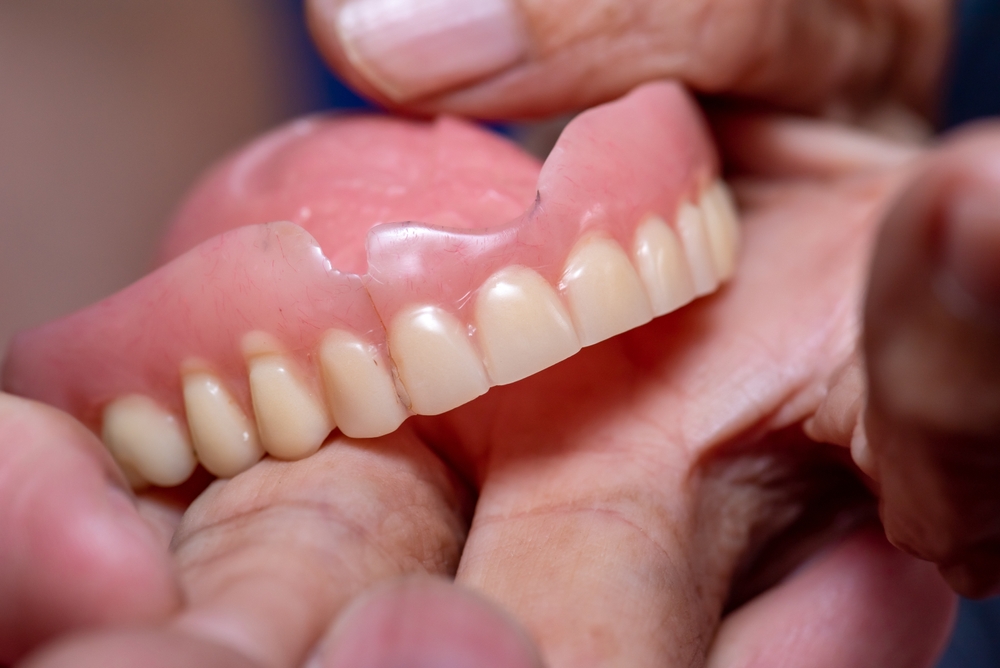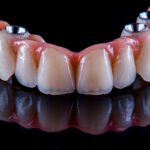Dentures Too Big For Mouth
Dentures are a popular solution for replacing missing teeth, offering functionality and aesthetics for individuals who have lost their natural teeth. However, an improperly fitted denture, especially one that is too big for the mouth, can lead to various challenges. Overly large dentures can cause discomfort, functional issues, and even affect your overall oral health.
In this article, we will explore the causes and signs of oversized dentures, their impact, and practical solutions to ensure a better fit. Understanding these aspects will empower you to take the necessary steps toward a more comfortable denture experience.
Causes of Dentures Being Too Big
Dentures that are too big for the mouth may result from several factors, including:
- Improper Initial Measurements
Dentures are custom-made, requiring accurate impressions of your gums and mouth. Mistakes during this process can lead to a denture size that doesn’t fit properly. - Natural Changes in the Mouth
After tooth loss, the jawbone and gums gradually shrink over time. This process, known as resorption, can make even well-fitted dentures feel oversized. - Overcompensation for Stability
Sometimes, dentures are designed slightly larger to improve stability, but this can result in a bulky and uncomfortable fit. - Material Flexibility Issues
Certain denture materials might not adapt well to the contours of the mouth, creating a sensation of excessive bulkiness.
Signs Your Dentures Are Too Big
Oversized dentures are often easy to identify because of the discomfort and functional issues they cause. Common signs include:
- Excessive Movement: Dentures that shift or move around excessively when you speak or chew.
- Difficulty Speaking: Slurred or unclear speech caused by a bulky fit.
- Soreness or Irritation: Painful spots on the gums due to the uneven pressure distribution.
- Gag Reflex: Overly large dentures can extend too far back in the mouth, triggering the gag reflex.
- Bulky Appearance: A visibly unnatural or puffy appearance around the cheeks and lips.
Problems Associated with Oversized Dentures
Wearing dentures that are too big for your mouth can lead to several complications:
- Oral Discomfort
A poor fit often results in sore spots, ulcers, and gum irritation. Prolonged discomfort can discourage proper use of dentures, affecting daily life. - Difficulty Chewing and Speaking
Oversized dentures make chewing food and articulating words challenging, leading to frustration and social embarrassment. - Bone Loss
Constant movement of oversized dentures can accelerate bone resorption in the jaw, further worsening the fit over time. - Infections
Improperly fitting dentures can trap food particles and bacteria, increasing the risk of gum infections and bad breath. - Aesthetic Concerns
Overly large dentures can give your face an unnatural appearance, affecting your confidence and self-esteem.
Solutions for Oversized Dentures
If your dentures are too big, there are effective ways to address the issue.
1. Denture Adjustment
Your dentist can adjust the shape and size of your dentures by reshaping certain areas or adding materials to improve the fit. This is often a quick and effective solution for minor fitting issues.
2. Denture Relining
Relining involves adding new material to the inner surface of the denture, allowing it to better conform to the current shape of your gums. This is especially useful if gum shrinkage is the cause of the oversized fit.
3. Replacement Dentures
In some cases, completely replacing your dentures may be necessary. A new set can be custom-made to ensure a more precise fit.
4. Adhesives and Stabilizers
While not a long-term solution, using a high-quality denture adhesive can help keep oversized dentures in place temporarily.
5. Consider Alternatives
For individuals who consistently struggle with denture fit, implant-supported dentures might be a better option. These provide more stability and are less likely to cause fitting problems.
Preventing Oversized Dentures
Preventing denture fitting problems starts with proper care and communication during the denture-making process:
- Work with a Skilled Dentist
Choose an experienced dental professional who specializes in creating well-fitted dentures. - Attend Regular Check-Ups
Regular dental visits allow your dentist to monitor changes in your mouth and make necessary adjustments to your dentures. - Communicate Concerns Early
If your dentures feel uncomfortable or too big, inform your dentist as soon as possible. Early intervention can prevent more severe problems. - Proper Maintenance
Store dentures correctly when not in use and clean them daily to ensure their longevity and functionality. - Stay Informed
Educate yourself about the process of denture fitting and care to better understand what to expect and how to manage issues.
Westwood Gardens Dental Clinic: One of the best dental clinics in Richmond Hill, Ontario
For those in Richmond Hill, Ontario, Westwood Gardens Dental Clinic is a trusted provider of high-quality dental care, including partial dentures. Call them today at 647-905-7303 or email info@westwoodgardens-dental.ca to schedule a consultation. You can also visit their clinic at Unit 18, 8868 Yonge St, Richmond Hill, ON, L4C 1Z8 for a comprehensive assessment and personalized treatment plan.
FAQs About Dentures That Are Too Big
1. What causes dentures to feel too big?
Dentures can feel too big due to gum shrinkage, improper initial measurements, or overly bulky designs. Regular adjustments or relining can resolve this issue.
2. How do I know if my dentures are too big?
Signs include excessive movement, difficulty speaking or chewing, gum irritation, and an unnatural facial appearance.
3. Can oversized dentures cause health problems?
Yes, ill-fitting dentures can lead to gum irritation, infections, jawbone resorption, and difficulty maintaining oral hygiene.
4. How can I fix oversized dentures?
Solutions include denture adjustments, relining, or replacement. In some cases, denture adhesives can provide temporary relief.
5. Are there alternatives to traditional dentures?
Yes, implant-supported dentures or dental bridges offer more stable and comfortable alternatives to traditional dentures.
Conclusion
Dealing with dentures that are too big for your mouth can be frustrating, but it is a common issue with practical solutions. Recognizing the signs of an oversized fit, such as discomfort, movement, and difficulty speaking, is the first step toward resolving the problem. Denture adjustments, relining, or even replacement can help achieve a more comfortable fit, ensuring that your dentures work effectively and enhance your quality of life.
Regular dental check-ups, proper maintenance, and open communication with your dentist are crucial for preventing and addressing denture fitting problems. By taking proactive measures, you can enjoy the confidence and functionality that well-fitted dentures provide.




